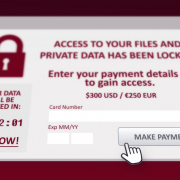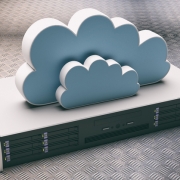Where You Save Your Files Is As Important As Backing Them Up In The First Place!
Introduction
We come across many different ways Small-to-Medium Size Businesses (SMBs) organize their data.
Some do a decent job of saving important files to a central location and then to an external drive. Not the best way to do it these days, but it works, to an extent.
Others seem not to have any structure at all. Instead, each employee is in charge of protecting their data. Often, management doesn’t even know what or where data is being saved or if it is saved at all.
Saving Data Without A Plan Is The Wrong Approach
First, saving data to unknown locations will bring your company to its knees during a disaster.
Second, management should know where vital files are located.
Third, your data should be saved to at least two different locations for redundancy.
Avoid Workgroups
Many small businesses without a server connect their PCs using workgroups. Workgroups allow a set of PCs to share resources.
But, workgroups don’t scale well.
For instance, if you need to print something and do not have a line printer, you would need to access it through another PC. If that workstation is offline, you cannot print.
Unless you only have a few computers, workgroups are not practicable. They are unproductive and not as secure.
Important Data Should Be Saved To A Central Location
If you have more than a few machines—get a server. One of the things a server does is act as a central repository for company and client information.
The benefits of a server:
- File and network security
- Fast and efficient processing
- Scalability – grow resources as needed
- Ability to install multiple hard drives
- Set up RAID for redundancy to cut data loss
- Control access to data
- Share resources
- Efficiency—it is much easier to backup data in limited locations
Control Where Your Data Is
First, make sure you have written policies in place. Direct employees to save company and client data to the server. Policies should be acknowledged in writing.
Second, set up a group policy to map server drives each time the user logs on. Also, set up folder redirection so users save information to the server and not their PC.
Third, have written policies and procedures in place for departing employees:
- Make sure they surrender company-owned devices
- Install software on mobile devices that can wipe contents remotely
- Use technology to detect and stop data theft using email, messaging, thumb drives, etc.
- Ensure you have backups for Microsoft Office and Google Apps
- Escort terminated employees from the office to ensure they do not take anything that is not their personal property.
Fourth, limit the number of cloud file storage applications, such as Dropbox.
Use A Business Continuity Solution Versus Data Only Backup
Data-only backup systems are easy and cheaper, but they are not comprehensive.
Data-only backup is slow. It can be days and weeks before your systems are fully restored. Unfortunately, you don’t have that kind of time.
Business Continuity solutions—such as the Datto SIRIS—keeps your network up and running even if servers are damaged, compromised, or destroyed. It protects both physical and virtual servers.
Additionally, Datto’s Backupify will backup Microsoft Office 365 (O365) and Google Apps. Please note that Microsoft and Google do not back up your data—that’s your responsibility. Now you know. Protect your O365 and Google App data.
Conclusion
Cybercriminals view SMBs as low-hanging fruit. They know that SMBs take fewer precautions than large corporations due to smaller budgets.
Hackers do their research. They target high-value users and attack them first. Then, they’ll go to the next target. Don’t let that happen.
Network protection is more affordable than you think. Have questions? Email us at [email protected] or call (845) 362-9675 for a free no-obligation consultation.
XSolutions is an IT Services Provider serving New York (NY), New Jersey (NJ), and Connecticut (CT). We provide Managed IT Services | Managed IT Security | Backup & Disaster Recovery| Cloud Data Protection | Security Awareness Training. Call (845) 362-9675 for a free consultation.











